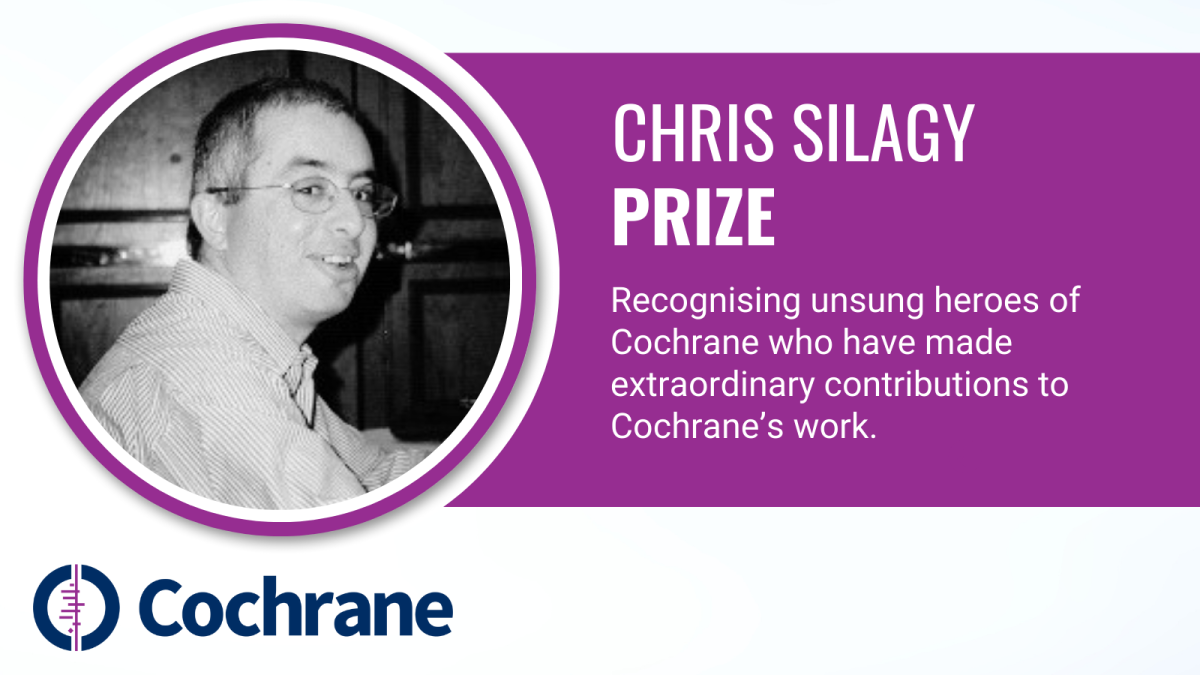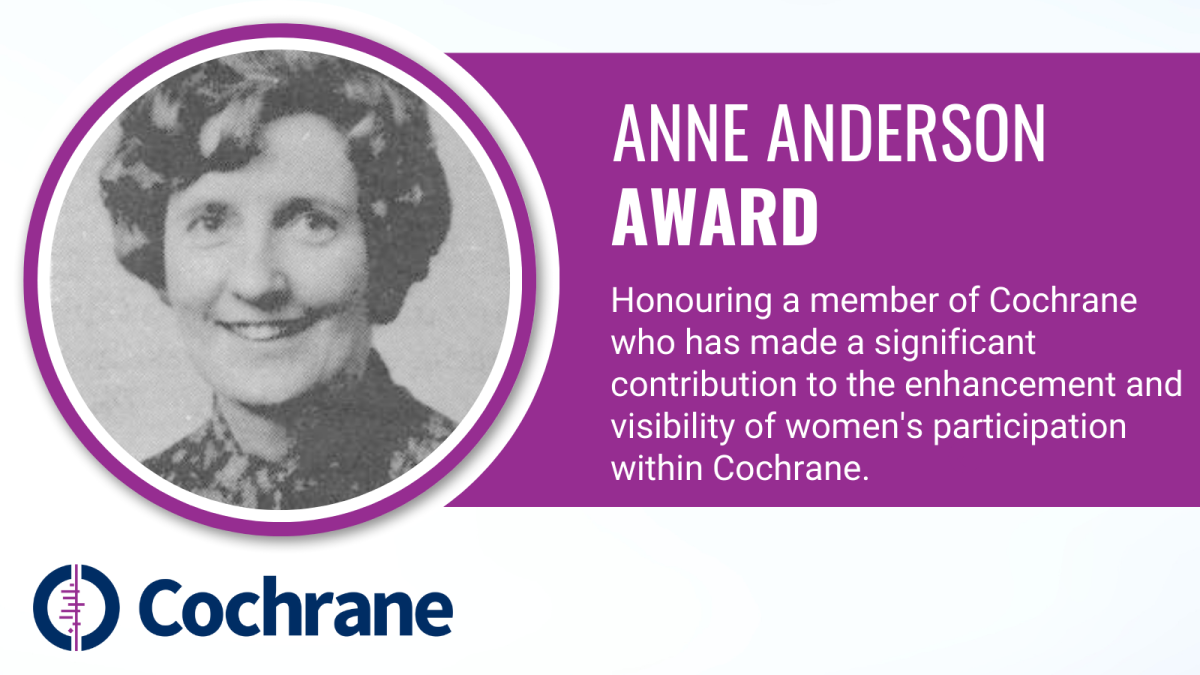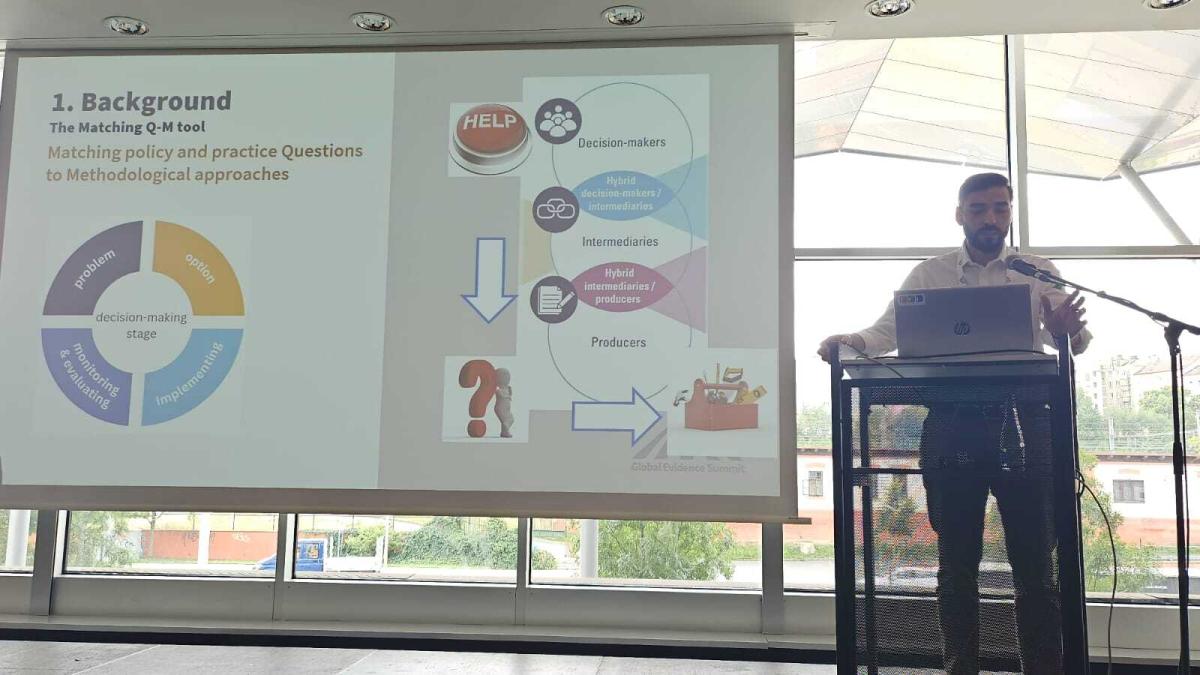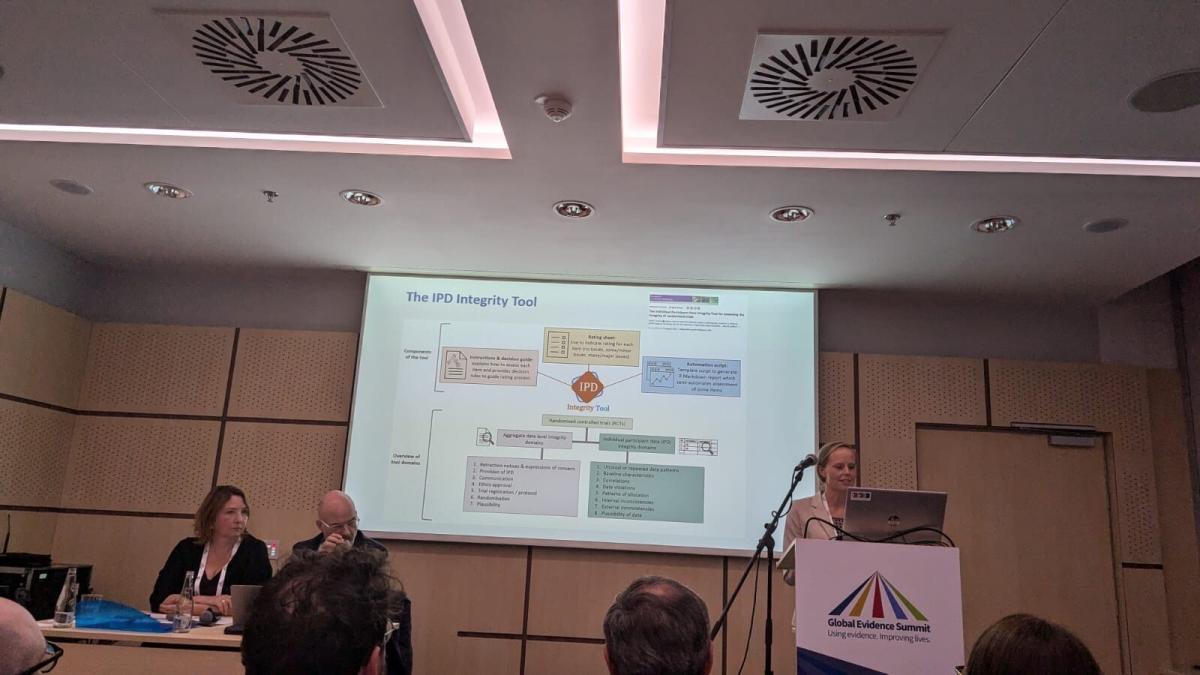Cochrane is excited to celebrate the recipients of the Cochrane Consumer Stipend and Cochrane LMIC/UMIC Stipend.
These stipends support individuals to attend a Cochrane event. This year it was the Global Evidence Summit (GES), held in Prague from 10-13 September 2024. The Cochrane Consumer Stipend is awarded to active Cochrane contributors or those positioned to become involved, such as health consumers, caregivers, or advocates. The Cochrane LMIC/UMIC Stipend is awarded to individuals from low-, lower-middle-, and upper-middle-income countries contributing to Cochrane's mission.
These stipends reflect Cochrane’s dedication to fostering diversity and inclusion in evidence-based health research, enabling voices from across the globe to actively engage in critical discussions on global health.
The following recipients received the Cochrane Consumer Stipend:
The following recipients received the Cochrane LMIC/UMIC Stipend:
We invited each recipient to share their personal experiences and reflections on attending the Global Evidence Summit.

Jonathan M Fuchs, from the USA, expressed his gratitude for being able to attend the GES in Prague this past September. Reflecting on his experience, he shared:
"The opportunity to attend the Cochrane Global Meeting in Prague was an extraordinary experience. I was able to expand my network focused on consumer engagement, interact with other consumers and members of the Cochrane Consumer Executive and build new international relationships. Thank you to Cochrane for providing a stipend to allow me to attend."

Joy Olivier, from South Africa, worked with Cochrane South Africa for 23 years and currently serves as the project manager for the Cochrane Africa Network. Reflecting on her experience, she shared:
"I am extremely grateful to the Cochrane Consumer Stipend Committee for affording me the opportunity to attend the GES. Some highlights include meeting with the Cochrane Consumer Executive Committee members, catching up with Cochrane colleagues and friends, and presenting my poster."

Luciane Cruz Lopes, based in Brazil, leads a Center for Evidence for Policy and Cooperation which directly supports the demands of the Brazilian federal government. Grateful for the opportunity to attend the GES with the Cochrane Stipend, Luciane shared:
"Participating in this important event allowed me to establish closer relationships with renowned researchers and explore fruitful collaborations beyond the training gained in courses and workshops. This is crucial for expanding my collaboration network in Brazil. I remain at Cochrane's disposal to continually support and collaborate with the collaboration actions of LMIC researchers."

Demian Glujovsky, based in Argentina, expressed his gratitude for the Cochrane LMIC Stipend, stating that without this support, it would be nearly impossible for a researcher in an LMIC to attend such an important event. Reflecting on the GES, Demian highlighted:
"GES was a perfect blend of the Cochrane Colloquium and the GES perspective, where AI was one of the key highlights. It was a great opportunity to engage in discussions with colleagues and plan for future, higher-quality research."

Jacqueline J Ho, based in Penang, Malaysia, is a paediatrician specialising in neonatal care, the Founding Director and current Co-Director of Cochrane Malaysia, as well as a Cochrane author and sign-off editor for the Cochrane Central Editorial Service. With her stipend, Jacqueline was able to support an undergraduate student, Jarren, in attending the GES to present a poster, making the experience even more impactful. Reflecting on her experience at the GES, Jacqueline shared:
"The GES was a unique opportunity to explore the other end of the evidence pipeline, beyond guideline formulation. It broadened my perspective and allowed me to build new relationships."

Suchi Kapoor Malhotra, from India, attended the GES, where she highlighted her work on evidence-driven interventions, including a rapid systematic review of the effectiveness and cost-effectiveness of Ecosystem-based Disaster Risk Reduction (Eco-DRR) interventions, funded by the Foreign, Commonwealth & Development Office (FCDO). She shared:
"GES itself was an enriching experience, both personally and professionally. It offered an extraordinary space for exchanging ideas and advancing interdisciplinary knowledge, made possible by the Cochrane Stipend’s support in highlighting my work on evidence-driven interventions. Reflecting on the Cochrane Stipend, it was a valuable opportunity that facilitated my participation in GES, where I engaged deeply with global leaders in evidence synthesis. Receiving the stipend highlighted the support and recognition from Cochrane, which was instrumental in enabling me to present my findings as well as witnessing diverse innovations in evidence synthesis and underscoring the importance of interdisciplinary collaboration. Moving forward, I hope to expand these connections and work towards incorporating more robust, context-sensitive frameworks across various thematic areas."

Mina Ma, originally from China, holds a master's degree from the Evidence-based Medicine Center of Lanzhou University and has extensive experience in conducting systematic reviews, clinical guidelines, and data mining, particularly on non-communicable diseases. She is now pursuing further studies at the Technical University of Munich, where her focus is on evidence-based medicine in mental health and advancing study methodologies. Reflecting on the Cochrane Stipend, Mina shared:
"The stipend has given me the invaluable opportunity to present my research on an international platform and connect with global experts at GES. It has deepened my understanding of systematic reviews and their role in shaping global health policy."

Celeste Estelle Naude, from South Africa, has been actively involved with Cochrane for over a decade. She currently serves as the Co-director of Cochrane Nutrition, Deputy Director of the Nutrition and Physical Activity Thematic Group, and holds numerous leadership roles within Cochrane and Cochrane Africa. At GES 2024, she contributed as a presenter for multiple sessions, co-author on various orals, and workshop facilitator. Reflecting on her experience, she shared:
"It was an immense privilege to attend the GES, and I am grateful to the Stipend Committee for helping to make this possible. What a wonderful opportunity to learn from and network with the global evidence community. It was great to meet up with collaborators, colleagues, and friends, and to engage with thought-leaders and passionate people working in diverse settings and sectors across the globe. It was a 2024 highlight! Thank you to everyone from the host organisations who worked over many years to make this meeting possible."

Aline Pereira da Rocha, from Brazil, shared her experience attending the Global Evidence Summit in Prague with the support of the Cochrane Stipend:
"Attending GES in Prague with the Cochrane Stipend was an enriching experience. I got the opportunity to explore key topics such as artificial intelligence, health technology, social justice, and climate change. Moreover, presenting my research on knowledge translation, Brazilian clinical guidelines, and health technology assessments, along with chairing sessions on hot topics not only deepened my expertise but also helped me build valuable connections for future collaborations."

Mayara Rodrigues, from Brazil, expressed her gratitude for the opportunity to attend the Global Evidence Summit for the first time with support from the Cochrane Stipend. She shared:
"Attending the GES was a unique and invaluable opportunity to broaden my horizons on evidence-based health. The exchange of experiences and knowledge with colleagues from diverse contexts was truly enriching and reinforced the importance of initiatives like this for advancing evidence-based practice globally."

Liliya Eugenevna Ziganshina, from the Russian Federation, has been deeply committed to Cochrane since 2003, when she participated in a training course led by Professor Paul Garner in Liverpool to develop her first Cochrane Protocol. Reflecting on her experience at the Global Evidence Summit (GES) 2024, she expressed:
"I would like to heartily thank the Cochrane Stipend Committee and all my dear Cochrane colleagues and friends for this unique opportunity. Coming to Prague despite all current non-straightforwardness and being there was vitally important to me. GES was a wonderful chance to catch up with all my good friends and colleagues, to meet more new ones, to share thoughts and ideas and to plan for future projects and developments in unique Cochrane spirit with absolutely amazing people and to learn and learn and learn! Thank you, Cochrane!"

































